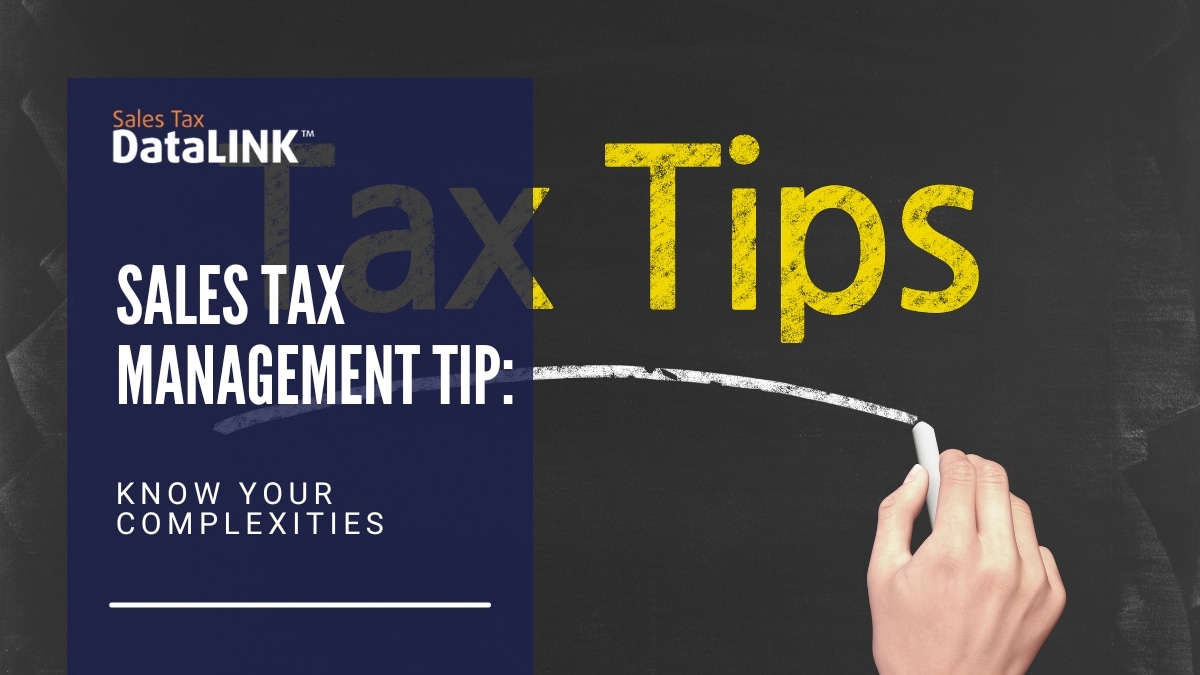Sales Tax Management Tip: Know Your Complexities
Sales tax is notoriously difficult, from varying sales tax rates in just a single region to thousands of rules about what is taxable and what isn’t. No matter what your industry or level of business is, knowing just how complex your sales tax is and what areas are the most complex can help you get a better handle on your sales tax management. Taxability, Probably the most confusing and complex thing about sales tax is the rules about what is taxable and what isn’t. Between sin taxes and weird historical taxes, plus the compromises legislators make along the way, it can be hard even to understand and remember the details.
When legislators and lobbyists get involved in taxes, they typically become more complex so if you do business in a state with an active legislature, you might be dealing with a very complex system of taxability. Different industries also have more rules than others for sales tax they need to pay attention to regularly, which means some industries are more complex when it comes to sales tax than others. Grocery stores, for instance, need a far more complex sales tax system to calculate sales tax on items than a clothing store in a state that only charges sales tax on accessories.
If you only have one business location and sell on-site to your customers, your sales tax rate will always stay the same for all transactions. You won’t need as complex a sales tax system as someone whose business sends products to the buyer’s location in another jurisdiction. Rate complexity doesn’t correspond to taxability complexity so your business might have the complexity of both or just one or the other. The last piece of the complexity puzzle in sales tax comes from the constant changes. At any given time, sales tax is undergoing a change in some location—either in sales tax rate changes or taxability changes.
If you don’t have complexity in one area, a change might create complexity in a matter of days. That’s why it’s best to be prepared for changes in sales tax complexities. Do a quick once-over of your business and think about where the complexities lie—is it in taxability, rates, changes, or even a combination of them? The more you know where complexities come from, the better prepared you are to anticipate those complexities and make sure your sales tax management accounts for those complexities. Knowing your strengths and weaknesses can also help you find a better sales tax solution.




